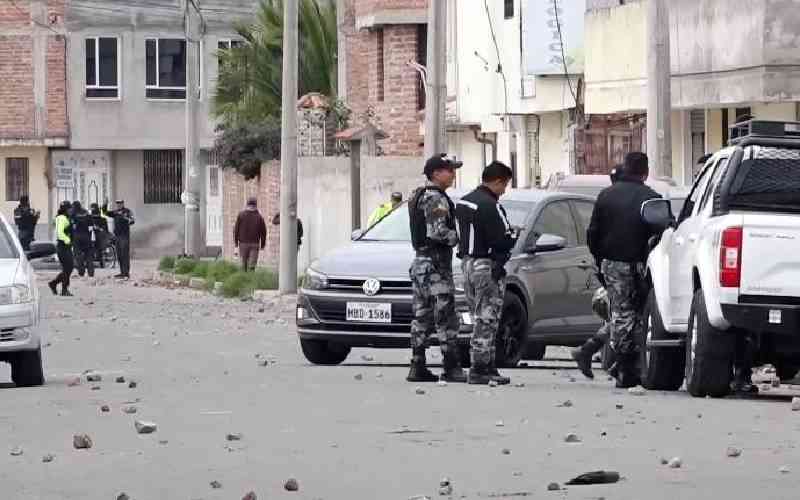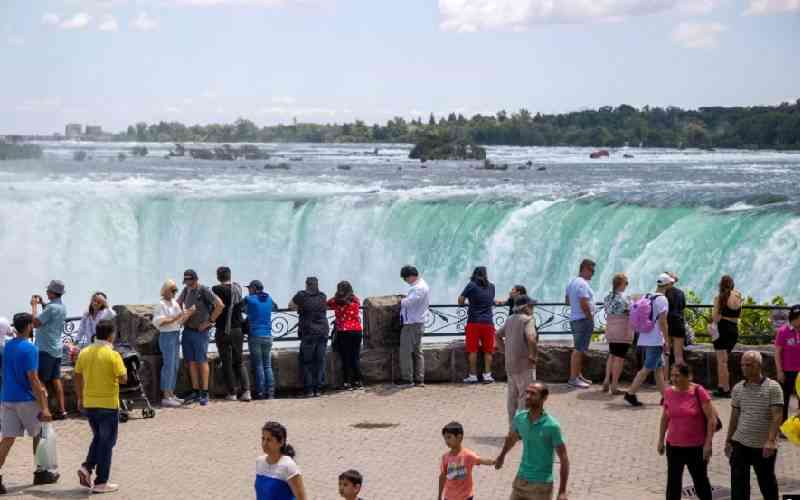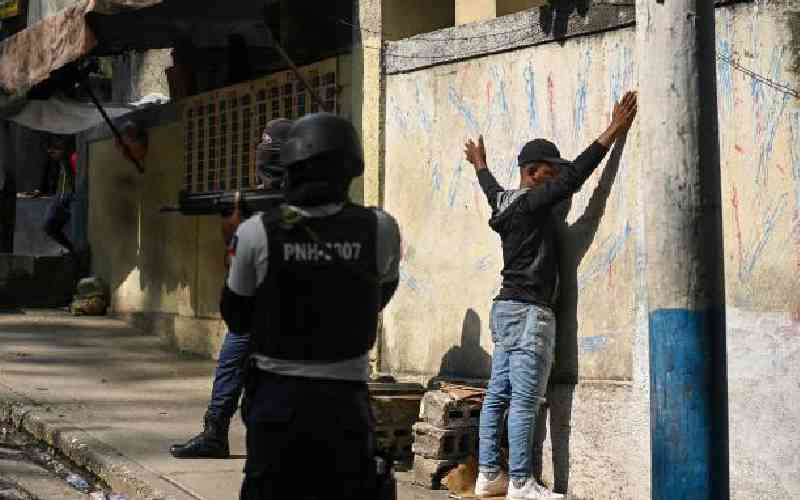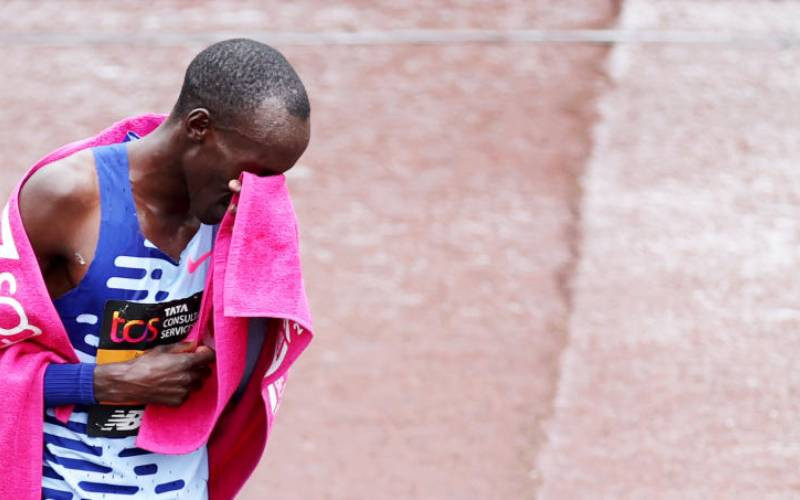Many years ago, a building under construction collapsed in downtown Nairobi, and several casual workers were buried alive.
What followed was comical, if not tragic, but it was all in keeping Kenya’s ways of dealing with disasters — natural or man-made — and showed exactly how rescue operations are often mishandled.
I forget how many people died under the downtown Nairobi building, but I remember some foreign soldiers helping, nay, taking over the rescue operations, and days later declaring there were no more bodies under the rubble.
The “closing” ceremony was a whole production, by uniformed officers, Kenya Defence Forces in their ceremonial regalia, the then Commander-in-Chief sitting regally, flanked by a retinue of Government functionaries, faces glum, sorrowful, with remorse written all over their starched uniforms and well-cut designer suits.
It was a military affair.
The closing ceremony that is, and subsequent handing over of the scene (of crime), the non-rescue efforts or whatever equipment the foreigners soldiers had carried with them and were leaving behind.
It was a Government-to-Government shindig, a diplomatic powwow.
That is what I overheard while I was still at the scene, watching the foreign soldiers pet, pat and congratulate their star dog — a poodle, a Chihuahua, a cocker spaniel maybe that was the breed.
It was some white dog which had been going in and out of the rubble, to sniff out life, sometimes with a microphone attached to its teeny-weeny body, and report back to its handlers, and tell them in dog language what was going on in there, and whether there was a victim with a pulse or not.
As this was going on, some relatives of the victims insisted their loved ones were still down there, but the Government knows better and it had declared the operation to either rescue the survivors or remove any bodies over.
The relations were hoping against hope. It had been days since the building collapsed. The victim who had a cellphone under the rubble had talked his life out, his battery had died probably before him while he was talking to the caring relatives, or to himself, since the parental authority, the Government, was so busy formulating ways of mishandling the rescue operation and could not listen.
It had been deafened by its own hype. A cacophony of noises from the bureaucrats and politicians, and their corrupt ways, had numbed the Government and it could not react or respond in time.
The victims were not their children. Or even their distant relatives. They were just, nay, mere, voters. Casual labourers not qualified enough to be permanently employed. They were not middle class. Lower, higher or middle middle class they were not. They were classless.
They were victims of corruption since the building fell under its own weight because the materials were sub-standard and the people supposed to ensure the right materials were used, were too busy counting or banking kickbacks received from land lords and contractors.
During the closing ceremony, or the funeral as it were, the then C-in-C was remorseful, and he said Kenya will do something about rescue operations so that in the unfortunate event that there is another disaster in the country in future, such operations will be handled by local personnel — who were supposed to be bought equipment and trained on how to use them.
The public had been digging through the rubble with bare hands and then a certain Nairobi politician visited the area, made enough noises and pleaded with local firms that own “heavy machinery” to offer help.
Based on the flurry of statements by politicians during that time when Nairobians was shedding crocodile tears, mourning the victims of corruption while at the same engaging in dubious ways and paying bribes to have their sorted out in different State entities, you could have thought the state-of-the-art equipment was already in town.
You could have thought that Kenyans were going to be sent for training within hours after the foreign soldiers had packed up their bags and left the country, or who knows, maybe they just went back to their embassy to continue doing whatever they were doing before a disaster struck and they came out to help.
That foreign soldiers had to come in to lend a hand in rescue operations in Kenya is not new. It had happened before.
In the aftermath of the US Embassy bombing in 1998, the country which sent in its soldiers when the building under construction collapsed was the first to send its soldiers to help in the rescue operations.
Stay informed. Subscribe to our newsletter
That should have been lesson enough, and Kenyans could have thought that very many years later, Kenya would have had its ducks in a row and set up proper disaster management and rescue operations systems.
Response to disasters is still as slow as it used to be over a decade ago, and there are no signs that in a decade, or two, to come, it will be any better.
The capital city, more so the built-up areas, with all much touted-middle class and real estate boom, is a tinderbox, waiting to explode, and take down with it all its residents because no one will rescue them, and they will have nowhere to run to since they have blocked all the escape routes with merchandise and vehicles.
Authorities have aided and abetted the morass by not getting bothered about safety — and sanctioning and licensing everything that is being done wrongly.
There have been enough disasters that could have made Kenya up its game when it comes to responding to disasters or rescuing victims, but it seems promises sound better, sweeter to a people who enjoy having pity parties, seeking sympathy, getting united in grief, and terming the smallest national problems global ones that require the help of all nations — while at the same time thumping its collective chest about being a sovereign state that can handle its own issues.
It is an international shame to write the least, that a year after Westgate attack exposed how ill-prepared Kenya is in rescue operations, there is no policy guiding such that has been formulated, and no one is even hinting that it should be there.
And you know what that means? If by some stroke of bad luck a disaster of that magnitude strikes in Nairobi, you are more at risk than you were a year ago.
Karibu Kenya.
 The Standard Group Plc is a
multi-media organization with investments in media platforms spanning newspaper
print operations, television, radio broadcasting, digital and online services. The
Standard Group is recognized as a leading multi-media house in Kenya with a key
influence in matters of national and international interest.
The Standard Group Plc is a
multi-media organization with investments in media platforms spanning newspaper
print operations, television, radio broadcasting, digital and online services. The
Standard Group is recognized as a leading multi-media house in Kenya with a key
influence in matters of national and international interest.
 The Standard Group Plc is a
multi-media organization with investments in media platforms spanning newspaper
print operations, television, radio broadcasting, digital and online services. The
Standard Group is recognized as a leading multi-media house in Kenya with a key
influence in matters of national and international interest.
The Standard Group Plc is a
multi-media organization with investments in media platforms spanning newspaper
print operations, television, radio broadcasting, digital and online services. The
Standard Group is recognized as a leading multi-media house in Kenya with a key
influence in matters of national and international interest.








